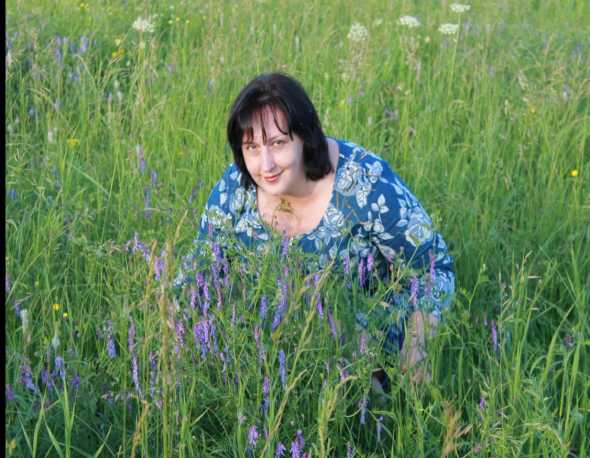
COMPARATIVES and SUPERLATIVES
GRAMMAR

GRAMMAR
good - better - the best
Is it better to stay at home or leave home when you go to university?
What’s the best age to get married ?
We use COMPARATIVES and SUPERLATIVES to compare two or more things or people

Adjective
Comparative
one-syllable adjectives
Superlative
big
bigger
great
the biggest
safe
greater
two-syllable adjectives with -y
1_______________
2_____________
the safest
easy
3_____________
other two-syllable and longe r adjectives
the eas i est
important
irregular adjectives
more important
4__________________
good
5_________________
bad
the best
worse
far
6__________________
further
the furthest
COMPARATIVES and SUPERLATIVES
GRAMMAR
1 Complete the table with the correct comparative and superlative adjectives. Check your answers in the article on page 21.
the greatest
safer
eas i er
the most important
better
the worst

GRAMMAR
2 Read the examples.
Then complete the rules with comparative and superlative .
1 Teenage life looks more exciting than it was.
2 Technology is the greatest change.
We often use:
a than after ____________ adjectives.
b the before ___________ adjectives.
comparative
superlative

GRAMMAR
3 Complete the facts with the comparative or superlative form of the adjectives. Remember to use than or the .
IT’S A FACT!
1 _________ (old) woman in the world lived until she was 122.
2 The university with __________ (large) number of students, over four million, is in Delhi, India.
3 The average US teenage boy is 4 kg _________ (heavy) he was 25 years ago.
4 Research says that Norway is __________ (happy) country in the world and also one of ________ (good) countries for children to grow up in.
5 homes in Hong Kong, China, are now __________ (expensive) in any other city in the world.
6 ____________ (young) age at which people can vote in Scotland is 16.
7 The north of England is generally _________ (cheap) the
south of England.
The oldest
the largest
heavier than
the happiest
the best
more expensive than
The youngest
cheaper than

GRAMMAR
4 Read the example and choose the correct option.
Teenagers aren’t as healthy as they were in the past. (= they were healthier in the past )
We use not as … as to say that people or things are the same / not the same.

GRAMMAR
5 Compare the people and things with not as … as . Use the adjectives in the box or your own ideas.
comfortable hard old serious untidy
0 English / maths English isn’t as hard as maths.
1 children / adults
2 you / your best friend
3 your dad / your mum
4 you / one of your relatives

GRAMMAR
6 Correct the mistakes in each sentence.
1 They live in a bigger house than us.
1 They live in a house bigger than us.
2 My mum is more relaxed that my dad.
3 Coffee is the more popular drink in the UK.
4 This area is more quiet than the city centre.
5 My most happiest time was when I lived abroad.
6 I’m not as taller as you.
2 My mum is more relaxed than my dad.
3 Coffee is the most popular drink in the UK.
4 This area is quieter than the city centre.
5 My the happiest time was when I lived abroad.
6 I’m not as tall as you.

too, enough, not enough
VOCABULARY
1 Read the examples and choose the correct options. Then match the rules to the sentences.
1 Weekends are just not long enough !
2 They don’t do enough exercise .
3 Teenage life is too busy now.
3
a We use too before / after adjectives or adverbs to mean “more than is necessary, possible, etc..”
1
b We use enough before / after adjectives or adverbs to mean “as much as is necessary”
2
c We use enough before / after nouns.

too, enough, not enough
VOCABULARY
2 Write replies. Use too or enough and the words in brackets. Be careful with the position of enough .
1 A : Did you buy the trainers?
B : No. They weren’t ___________ (big). They felt _________ (tight).
2 A : Why didn’t you do the homework?
B : I didn’t have ___________ (time) and I was __________ (tired).
3 A : Are you getting a new laptop?
B : Yes. Mine is ____________ (slow) and it hasn’t got _________
(memory).
too tight
big enough
enough time
too tired
too slow
enough memory

too, enough, not enough
VOCABULARY
3 Complete the sentences with your own ideas. then compare your answers with a partner.
1 I never have enough _____________.
2 I don’t ___________ because I’m too ______________ .
3 My parents sometimes aren’t _____________ enough.
4 I’m _____________ enough to ___________ .
5 Our school isn’t ____________ enough and it’s too __________.

WORKBOOK: p.14, ex.1,2

The lesson is over!
Good bye!






























